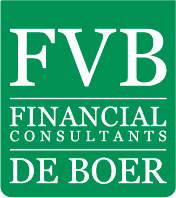
It’s still top of your list of things to do – buy a house in Amsterdam, or The Hague or perhaps that pretty village you spotted a few weeks ago. But is it the right thing to do at the moment? Here are five questions that I am currently being asked.
Interest rates in the Netherlands are going up. Should I be worried?
In a word no. An increase has been widely expected, given recent moves by the central banks. And although rates are up by around one third in past few months, they started from such a low level that the interest you will pay on your mortgage can still be below 2.5% on a 20-year fixed rate deal, lower if you have an NHG guarantee.
Of course, if rates go up too much there will be an impact on house prices because people will have less financial room to play with and banks will lend less. But the bottom line is that the Netherlands does not have enough houses – according to some estimates, there is a current shortfall of 300,000 – and that position is unlikely to change in the near future. So expect house prices to continue to rise for the time being.
If you are about to buy, or already have a mortgage with a flexible interest rate, it might well be worth fixing that for a longer period of years. Ask your mortgage advisor what they think.
Is it worth trying to buy a house in the Netherlands at the moment?
Yes, if you can afford it, and you are going to be in the Netherlands for a few years or more, it is still a wise move to buy a house. I’ve been in this business for long enough to know that buying a place is more cost effective than renting. For a start, if you are renting, you are probably paying a large chunk of your salary to your landlord – and it makes much more sense to invest that in property instead. I know I would rather pay my own mortgage instead of my landlord’s.
And don’t forget, in the Netherlands you can get a mortgage of up to 100% of the price of the property, which is higher than in many other countries.
How much should I overbid for the house that I really want?
It depends how much financial wiggle room you have. Research by Dutch broadcaster RTL has shown that at the moment four in five homes are sold for more than the asking price and that in 30% of cases, the purchase price is at least €50,000 higher than the sellers had asked for.
If you take that into account, you should start looking at property priced at well below your maximum, so that you do have the option of overbidding. Incidently, the Dutch central bank is looking into ways to make the bidding process more transparent, and one of the options is to introduce a limit on how much above the asking price people can bid. Obviously, that will take some time to realise, so it won’t help you if you are currently looking to buy.
Do I need a mortgage advisor for the whole process of getting a house?
Technically no, but realistically yes. Getting a mortgage can be straight forward if you are a straightforward case, but how many of us actually have the standard family, income, age and all the other things mortgage providers take into account? And don’t think that by not having an advisor you will avoid paying the costs associated with taking out a mortgage, because your bank will happily charge you a ‘provision’ for lending you the money. Your mortgage advisor will also prepare you well for the bidding process itself, which increases your chances of winning.
How much do I need to have in reserve to cover all the costs associated with buying a house?
If you have makelaar, or real estate agent to help you, and I strongly recommend you do, you will need to pay a fee for their services – usually between 1% and 1.5% of the purchase price, although some work with fixed fees.
You also need money to cover all the legal costs – transferring ownership in the land registry, notarial costs for drawing up the contract and the property transfer tax.
You cannot buy a home without a notary, who will charge you a fee of up to €2,000, for drawing up the documents, but you can deduct the cost from tax.
You will also pay overdrachtsbelasting or property transfer tax, of 2% of the property price unless you are a first-time buyer under the age of 35 buying a property that does not cost more than €400,000.
If you have the property valued, that will cost around €800. And of course, don’t forget the fees for your financial advisor who arranges the mortgage – which will be between €2,500 and €4,000.
If you have any other questions about buying a house in the Netherlands, don’t hesitate to get in touch.


